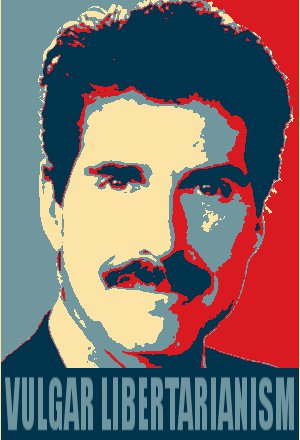From Thomas Szasz The Freeman: Ideas on Liberty (May 2009): The Shame of Medicine: The Case of Alan Turing:
The persecution of homosexuals is paradigmatic of the history of psychiatry's monumental blunders and brutalities and of its policy of never acknowledging nor apologizing for them. Instead, organized psychiatry intensifies the celebration of its founding quack, Benjamin Rush (1746–1813). Declared Rush, I have selected those two symptoms [murder and theft] of this disease [crime] (for they are not vices) from its other morbid effects, in order to rescue persons affected with them from the arm of the law, and render them the subjects of the kind and lenient hand of medicine.
What did Rush mean when he spoke of medical kindness and lenience? Lamenting the excess of the passion for liberty inflamed by the successful issue of the [Revolutionary] war,
he explained, Were we to live our lives over again and engage in the same benevolent enterprise, our means should not be reasoning but bleeding, purging, low diet, and the tranquilizing chair.
Psychiatry–glorifying the use of coercion as cure–is the shame of medicine.
From Bryan Caplan, EconLog (2009-04-24): Szasz on the Turing Tragedy:
In the last couple of decades, a lot of people have apologized for the past crimes of the groups with which they identify: the U.S. for Japanese internment, the Church for Galileo, Swiss bankers for Nazi money laundering, even the Japanese (kind of) for their war crimes. I’d like to see psychiatrists do the same — to admit that unusual preferences are not disease,
affirm that it is wrong to treat people against their will, and turn their backs on the greats
of their profession who believed in and practiced coercive therapy.
I’d like it, too. Psychiatrists expect to be taken seriously, both as scientific experts and as benevolent caretakers; I think at least a minimal requirement of being taken seriously on these claims would be for them to own up to the fact that within living memory, their discipline was rife with theories now universally regarded as the worst sort of politically-motivated pseudoscience and therapeutic
practices now universally reviled as the worst sort of atrocities. They have been wrong about everything and they ruined life after life with the most appalling sorts of brain-damaging treatment on the basis of these pseudoscientific superstitions. If shrinks want to be taken seriously, they need to start by owning up to their record; because if they can’t do so much as that, the rest of us have every reason to expect that they’ve done nothing to correct the systematic vices that led to the ridiculous lies and sadistic horrors they were inflicting as recently as 30-40 years ago. But I don’t expect anything like it to happen this side of the revolution.. As Szasz says in
The Freeman: Ideas On Liberty (July/August 2009): The Shame of Medicine: The Depravity of Psychiatry:
I am grateful to Caplan for calling attention to a problem most people prefer to ignore. His expectation will, however, not be fulfilled, and it is important to understand why. Claiming competence in astronomy and incarcerating heretics are not integral to the identity of the Catholic Church. In contrast, claiming competence in predicting dangerousness
and incarcerating persons alleged to be so because of mental illness
are integral to the psychiatric enterprise.
From GT 2008-06-24: Medicated madness
Of all the horrible things that institutional psychiatry routinely does, one of the most infuriating for me is its stupidly aggressive lack of anything approaching self-consciousness or critical reflection. In a field where, not half a century ago, patients
were routinely locked away in filthy hellholes that would be hard to distinguish from a medieval dungeon, and, once confined, subjected, against their will, to restraints, tortures and mutilations that would have made Torquemada blush — camphor shock torture, repeated massive electric shocks to the brain, and, at the end of the road, an icepick jabbed through the eye socket and rotated so as to mutilate the brain and deliberately destroy centers of personality and higher cognition — in a field, I say, where all this was dignified as brain damaging therapeutics
and regarded as best practices for a scientifically-informed helping profession — in a field where current practitioners now more or less universally agree that torture like this was based on little more than pseudoscience and quackery, and where almost no-one in their right mind would propose ever using practices like these on any patient today — in a field, that is to say, where within living memory thousands of people were subjected to the worst kinds of sadism and torture that the human mind can devise, and all of it based on what are now almost universally acknowledged follies, illusions and lies indulged in by the recognized experts of the field — in such a field, you might expect at least a little bit of humility, historical awareness, and decent caution, rather than sanctimonious self-righteousness and aggressive obliviousness to the idea that psychiatric practice itself might perhaps be part of the problem.
In point of fact, there are countless cases like this one, cases where a life crisis becomes the occasion of massive psychiatric intervention, and where the intervention itself spirals into years of institutionally- and chemically-manufactured madness; in which the stereotypical behavior of the psychiatric patient, invariably passed off as part of her disease,
can in fact be traced quite directly to the physiological, behavioral and social effects of the forced drugging, the forced confinement in hospital
psychoprisons, and other aspects of psychiatric therapy.
Psychiatrists then have the gall to use those same symptoms, created by their own therapy,
as proof
of the need for even more of the same.
Under the present circumstances, there is no reason to believe that individual psychiatrists or psychiatric institutions will ever trouble themselves to acknowledge this possibility or to incorporate it into their practice in any way that matters. It’s not just the financial incentives — although those are certainly there, and those are certainly important. The problem that underlies the financial problem is that psychiatrists have no real reason to care whether they get things right or not. Why should they? They are backed by cultural prejudices in favor of doctors; they can dismiss any complaints by their patients
as literally the ravings of lunatics, and almost no-one will bat an eye; they are backed up by the force of the law, which gives them the power to force their latest and greatest therapies
on a literally captive market of unwilling patients.
Unless and until psychiatrists no longer have the privilege of inflicting nonconsensual treatment,
which is to say, unless and until they become directly accountable to the will and desires of the people for whose benefit they claim to be acting, cases just like Nikki’s are going to happen again, and again, and again.



